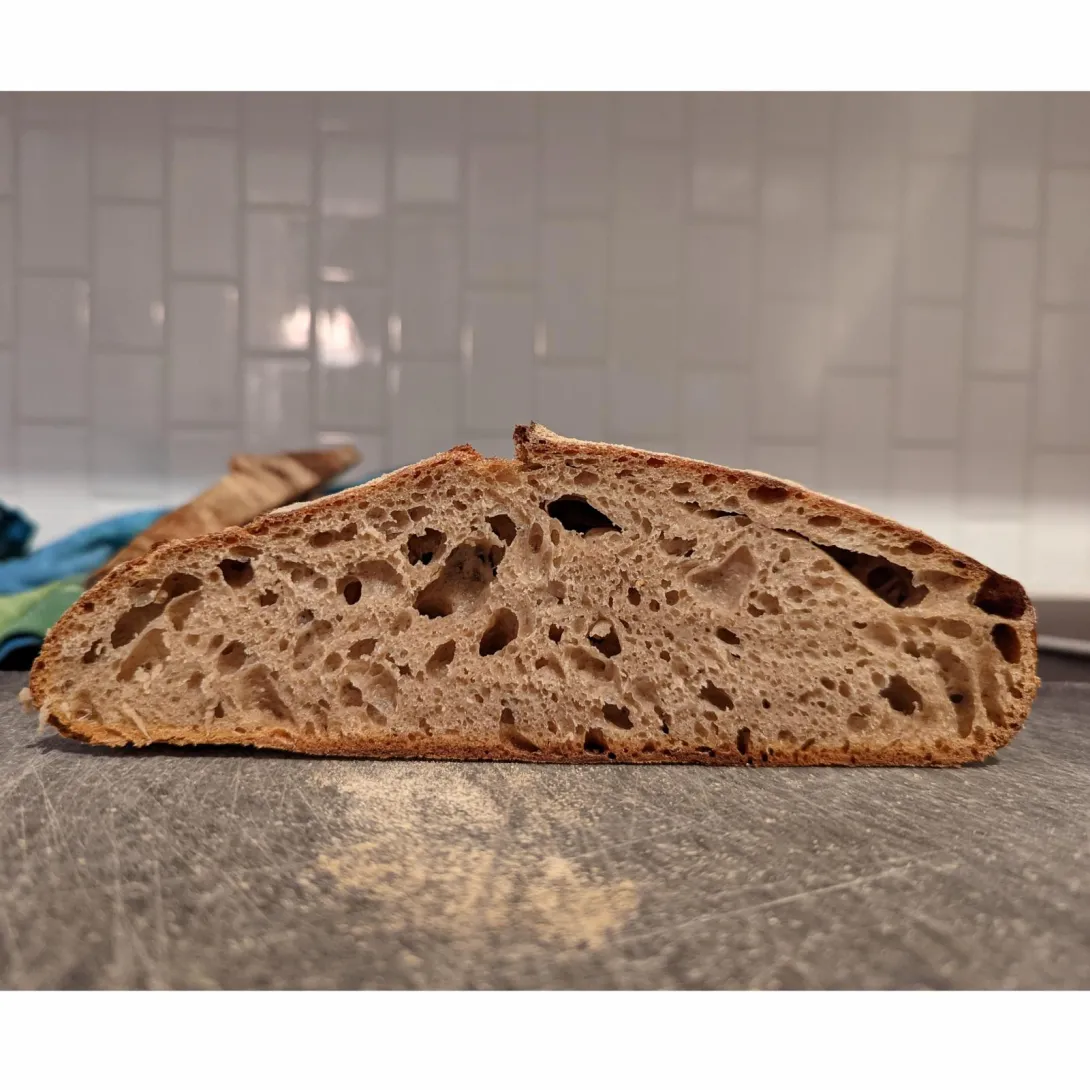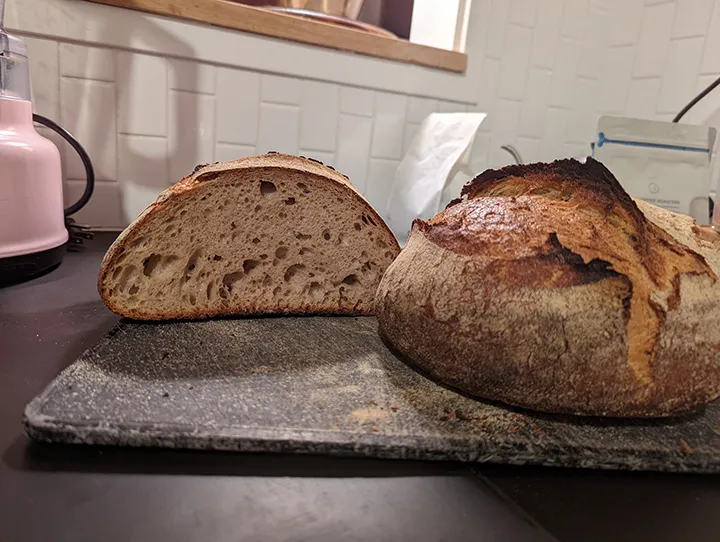Hello!
First time poster here. I've been having issues with loaves collapsing after being turned out of the banneton. It never used to be an issue but since I've gotten a proofing box it keeps happening. For this particular loaf:
50% Cairn Spring Mills AP Flour (11.8%) (I've used bread flour, same deal)
50% Spelt
2% salt
20% rye starter
75% water (i've tried 70)
3 hours bulk @ 74 degrees
3 hours ferment in banneton at 74
For this loaf I worked the dough more than the others, to see if it was a gluten development issue. I did a bunch of "cup and pulls", then some lamination after letting it sit for 15 minutes. The dough felt elastic.
Then every hour a "coil fold"
I don't have this issue when I cold proof following the bulk proof.
If I go by the "double in volume", the bulk ferment is finished super quickly, like 1.5 hours which seems impossble, but maybe I'm just used to cold temps.
Do I just have a classic overproof?
Thank you very much!
A weak white flour, 50% spelt and 20% rye starter I wouldn't expect it needed a 3 hour final proof especially if the dough has doubled in volume with the bulk ferment. 1 - 1.5 hours tops seems more within the range. Don't go by the clock. Either go easier on the bulk, or cut down on the final proof by at least half or use a cold proof. You could also drop the starter percentage and put the flour and water you've cut down on in the starter back into the main recipe. .
Spelt ferments quickly. If you had a very strong bread flour to counterbalance the spelt then I'd understand but the white flour isn't strong at all. And you have a quite high percentage rye starter to-boot. Timing is off. Just look at the dough!
Oh... and photos help immensely with a diagnosis.
Thank you for the reply. I guess I was just used to long ferment times here in the pnw winters. And thought I had added a photo, let's try this.
Image

Looks tasty! What might be happening is also a lot of spreading because of the spelt. Not scoring too deeply, if at all, will help with the rise. Refrigeration would have helped not to over proof and doing everything at room temperature might have thrown things off a bit. So a few options to try...
1: Proof seam side downs when you flip the dough over the seam will act like a natural scoring. No need to use a blade.
2: Bulk ferment till puffy and aerated. Doesn't necessarily have to double.
3: Shorten the final proof. Due to the high amount of wholegrain spelt doubling for the final proof will be too much. Aim for 1-1.5 hours, should be puffy but still have strength.
See what happens.
EDIT: It's a curious crumb. Can't tell if it's under or over. You said it was doubled in the bulk (that's why I thought over due to how much it had risen and the flours used) but are you bulk fermenting in a bowl or a container with straight sides. Are you sure it's doubling?
Followed your suggestion and went by feel and look more than time. It went pretty quick...2.5 hour bulk ferment, then 2 hours finishing in the basket.
My first exposure was the Tartine book so I think the long times in that threw me off (when I got the proofing box and wasn't fermenting in 65F rooms)
Replaced the spelt with rye (80% bread 20% rye), kept 75% hydration.
Much better!
Thanks again,
B
Image
